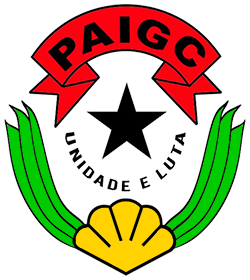
Politics of Cape Verde takes place in a framework of a semi-presidential representative democratic republic, whereby the Prime Minister of Cape Verde is the head of government and the President of the Republic of Cape Verde is the head of state, and of a multi-party system. Executive power is exercised by the president and the government. Legislative power is vested in both the government and the National Assembly. The judiciary is independent of the executive and the legislature. The constitution, first approved in 1980 and substantially revised in 1992, forms the basis of government organization. It declares that the government is the "organ that defines, leads, and executes the general internal and external policy of the country" and is responsible to the National Assembly.

The recorded history of Cape Verde begins with the Portuguese discovery of the island in 1458. Possible early references to Cape Verde date back at least 2,000 years.

Aristides Maria Pereira was a Cape Verdean politician. He was the first President of Cape Verde, serving from 1975 to 1991.

Pedro de Verona Rodrigues Pires is a Cape Verdean politician who served as Prime Minister of Cape Verde from 1975 to 1991, and later as President from 2001 to 2011.

José Maria Pereira Neves is a Cape Verdean politician who is currently the president of Cape Verde, having previously served as the Prime Minister of Cape Verde from 2001 to 2016. He is a member of the African Party for the Independence of Cape Verde (PAICV). In the 2021 presidential election, he was elected with 51.7% of votes, beating his nearest rival Carlos Veiga who got 42.4% of the total votes.

The African Party for the Independence of Guinea and Cape Verde is a political party in Guinea-Bissau. Originally formed to peacefully campaign for independence from Portugal, the party turned to armed conflict in the 1960s and was one of the belligerents in the Guinea-Bissau War of Independence. Towards the end of the war, the party established a socialist one-party state, which remained intact until multi-party democracy was introduced in the early 1990s. Although the party won the first multi-party elections in 1994, it was removed from power in the 1999–2000 elections. However, it returned to office after winning parliamentary elections in 2004 and presidential elections in 2005, since which it has remained the largest party in the National People's Assembly.

The Movement for Democracy is a Christian democratic and liberal party in Cape Verde. Established in 1990, it was the ruling party from 1991 to 2001 and returned to power in the 2016 parliamentary election. Its members are nicknamed "os ventoinhas" in Portuguese, a reference to the party's logo.

The African Party of Independence of Cape Verde is a democratic socialist political party in Cape Verde. It was formerly a Marxist–Leninist communist party and the sole legal party in the country from 1981 to 1990. Its members are nicknamed "os tambarinas" in Portuguese, and they identify themselves with the color yellow.
The Democratic Alliance for Change was a political alliance in Cape Verde in the early 2000s.
The Democratic Convergence Party was a political party in Cape Verde.

The Democratic and Independent Cape Verdean Union is a conservative political party in Cape Verde.
The Labour and Solidarity Party is a social democratic political party in Cape Verde. It is based in São Vicente and led by Gilson Alves.

Parliamentary elections were held in Cape Verde on 22 January 2006. The result was a victory for the ruling African Party for the Independence of Cape Verde (PAICV) run by José Maria Neves, which won 41 of the 72 seats in the National Assembly. Second was the Movement for Democracy (Mpd) and third was Democratic and Independent Cape Verdean Union (UCID) led by João Santos dos Luís.

Cape Verde or Cabo Verde, officially the Republic of Cabo Verde, is an archipelago and island country of West Africa in the central Atlantic Ocean, consisting of ten volcanic islands with a combined land area of about 4,033 square kilometres (1,557 sq mi). These islands lie between 600 and 850 kilometres west of Cap-Vert, the westernmost point of continental Africa. The Cape Verde islands form part of the Macaronesia ecoregion, along with the Azores, the Canary Islands, Madeira, and the Savage Isles.
Francisco Benante is a Bissau-Guinean politician. He was President of the African Party for the Independence of Guinea and Cape Verde (PAIGC) from 1999 to 2002 and President of the National People's Assembly of Guinea-Bissau from 2004 to 2008.
Onésimo Silveira was a Cape Verdean politician and writer.
Aristides Raimundo Lima is a former Cape Verdean politician and was the 4th president of the National Assembly from 2001 to 2011.

Presidential elections were held in Cape Verde on 17 October 2021. The result was a victory for José Maria Neves of the opposition African Party for the Independence of Cape Verde (PAICV), who received 51.8% of the vote.
Austelino Tavares Correia is a Cape Verdean politician who currently serves as president of the National Assembly of Cape Verde since 2021.

















